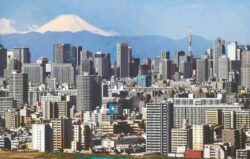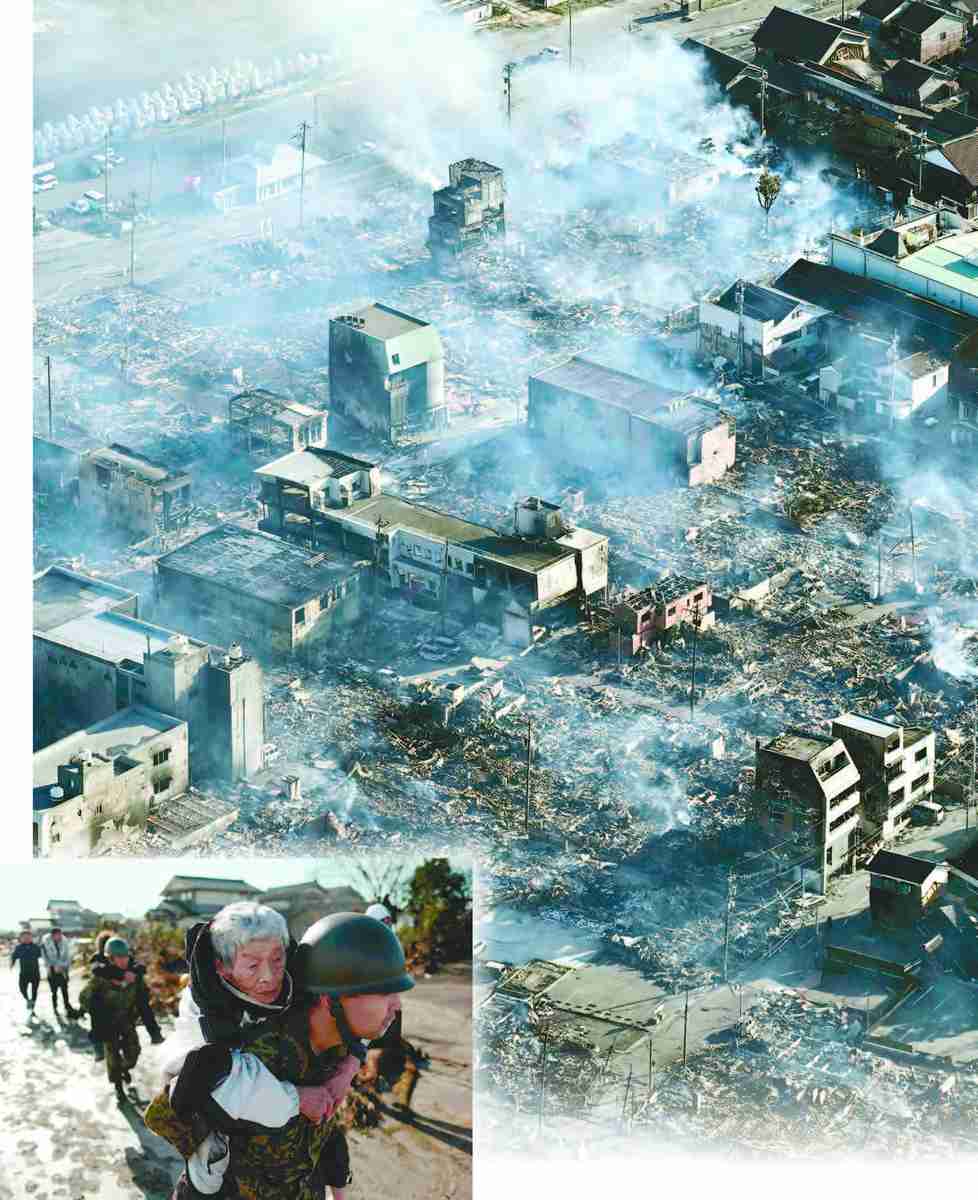
The massive earthquake in the Noto Peninsula on New Year’s Day topped this year’s list of the top 10 Japanese news events. The great performances by Shohei Ohtani and the Japanese delegation at the Paris Olympics also ranked in the list chosen by The Yomiuri Shimbun readers, based on 24,675 valid responses in a poll conducted from Nov. 26 to Dec. 12. Three responses correctly predicted the final result.
***
1. Massive quake hits Noto Peninsula on New Year’s Day
A magnitude 7.6 earthquake, with the Noto region of Ishikawa Prefecture at its epicenter, struck at 4:10 p.m. on Jan. 1. The quake registered a seismic intensity of 7 on the Japanese scale in Wajima and Shika as well as upper 6 in Nanao, Suzu, Anamizu and Noto.
The Japan Meteorological Agency issued the first major tsunami warning since the Great East Japan Earthquake in 2011. The tsunami reached a wide area which included Ishikawa, Toyama, Niigata and Yamagata prefectures.
A total of 228 people died as a direct result of the earthquake, while 241 people have died in Ishikawa Prefecture due to quake-related causes, such as stress from life as evacuees, according to figures as of Dec. 17. Including quake-related deaths in Toyama and Niigata prefectures, the death toll from the earthquake totaled 475. The figure is the third highest among death tolls resulting from natural disasters since the Heisei era (1989-2019), following the 2011 Great East Japan Earthquake and the 1995 Great Hanshin Earthquake.
Fault displacement resulting from the quake caused massive ground upheavals, which some described as being on a scale that could occur “only once in several thousand years,” mainly along the northern coastline of the Noto Peninsula. According to analysis by the Geospatial Information Authority of Japan, the upheavals reached as high as four meters in some parts of Wajima.
More than 260 buildings were destroyed in a massive fire that broke out after the quake around the Asaichi-dori area in Wajima. The Wajima Morning Market is one of the most popular tourist attractions in the northern Noto Peninsula, with shops for lacquerware and souvenirs as well as stalls selling seafood and other products. Demolition of damaged buildings is underway, paid for using public funds.
2. Shohei Ohtani becomes 1st 50-50 Major Leaguer

Los Angeles Dodgers superstar Shohei Ohtani became the first player in Major League Baseball history to hit 50 home runs and steal 50 bases in a single season. In addition to winning the National League home run and runs-batted-in (RBI) titles in the 2024 regular season, he was named the league’s Most Valuable Player.
He left the Los Angeles Angels last December to join the Dodgers on a 10-year, $700 million contract, which was worth about ¥101.5 billion at the time. Surgery on his right elbow prevented him from returning to his two-way role as a hitter and pitcher, but he put his skills in running and hitting on display.
Ohtani finished the season with his batting average of .310, 54 homers, 130 RBIs, and 59 stolen bases, clinching the home run title for two years in a row and becoming the first Japanese player to win the RBI title in MLB.
The Dodgers won the National League Championship Series and played in the World Series against the American League champion New York Yankees. The Dodgers defeated the Yankees to win the title for the first time in four years.
On Nov. 21, Ohtani unanimously won this year’s National League MVP, following being unanimously chosen as the American League MVP in 2021 and 2023. He also became the first primary designated hitter to win the award.
3. Japan takes 45 medals at Paris Olympics

The 33rd Summer Olympic Games opened in Paris on July 26 for 17 days of competition through Aug. 11. Japan took 45 medals — 20 gold, 12 silver and 13 bronze — a national record for an overseas Summer Olympics. Japan ranked third in the number of gold medals by country and region, behind the United States and China at 40. Japan finished sixth in the total number of medals.
About 11,000 athletes competed in 329 events across 32 sports. The Japanese delegation numbered about 400, the country’s largest for an overseas Summer Games.
Haruka Kitaguchi won the gold medal in the women’s javelin throw. This was the first time a Japanese woman won a gold medal in an athletics event other than the marathon.
Japan’s artistic gymnastics team won the gold in the men’s all-around event, upsetting China on the final apparatus, the horizontal bar. Shinnosuke Oka won gold in the individual all-around event and men’s horizontal bar.
The sport in which Japan shone brightest was wrestling. The squad won 11 medals in the 18 weight classes, including eight golds. The women, currently the dominant force in the world, medaled in all six divisions, taking home four golds and two bronzes. Japan also got two golds each in men’s freestyle and Greco-Roman.
4. New banknotes debut in 1st design change in 20 years
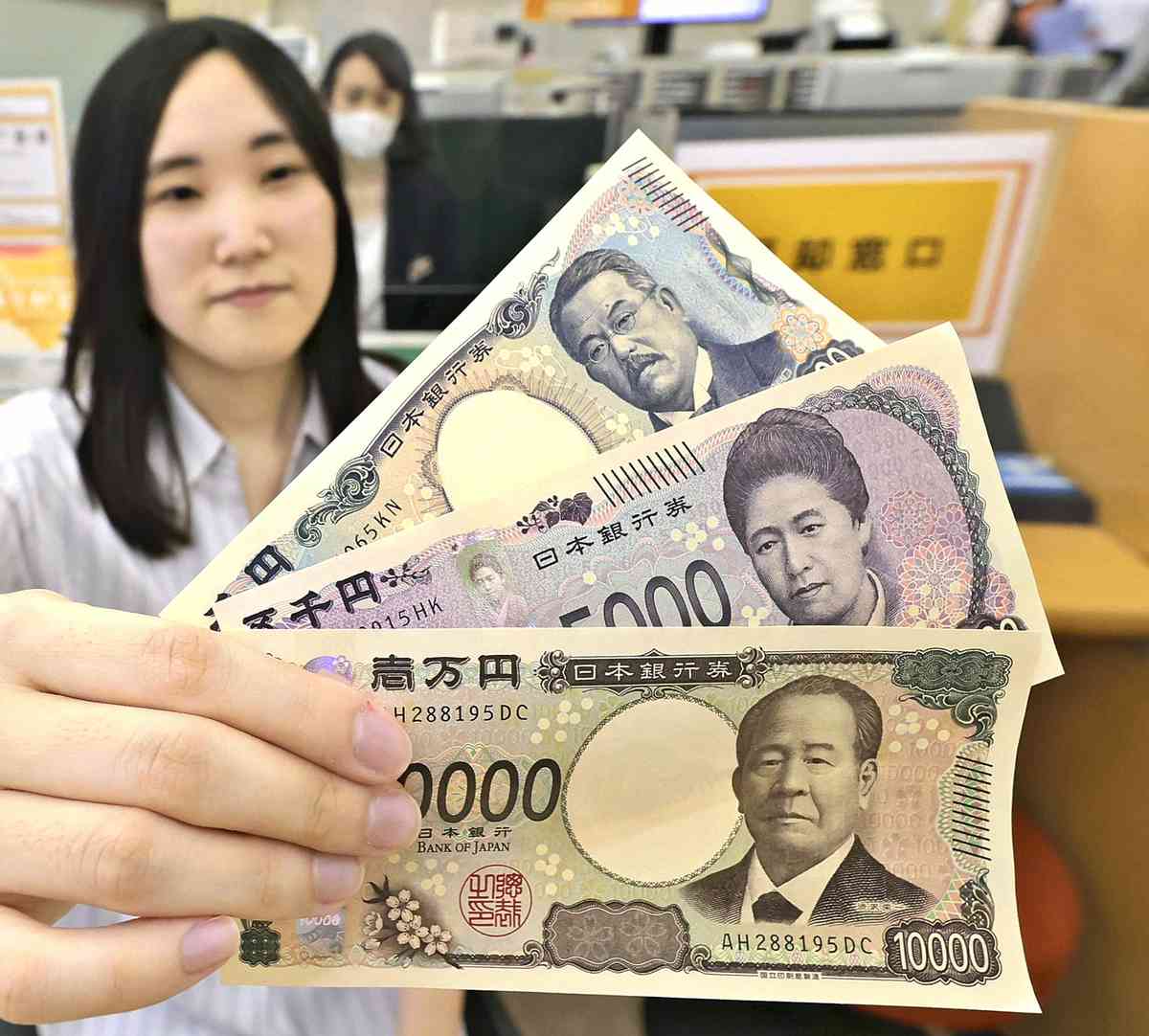
The Bank of Japan began delivering newly designed banknotes to financial institutions July 3, marking the first renewal in 20 years.
The portrait on the new ¥10,000 bill is that of Eiichi Shibusawa, the industrialist known as the “father of Japanese capitalism,” and the ¥5,000 bill features Umeko Tsuda, a pioneer of women’s higher education in Japan. Bacteriologist Shibasaburo Kitasato is the face of the new ¥1,000 bill.
It has been 40 years since the portrait changed from Prince Shotoku to educator Yukichi Fukuzawa on the ¥10,000 banknote in 1984.
For the first time in the world, a type of 3D hologram technology that makes the portrait appear to rotate when viewed from different angles was adopted as an anti-counterfeiting measure for the banknotes.
The new banknotes use a larger font size or the numerals denoting the value of the bills. Also, the identifying marks on the notes that can be distinguished by touch are differently positioned according to the type of banknote to make them more accessible for visually impaired people.
5. A rash of ‘dark’ part time robberies occurs
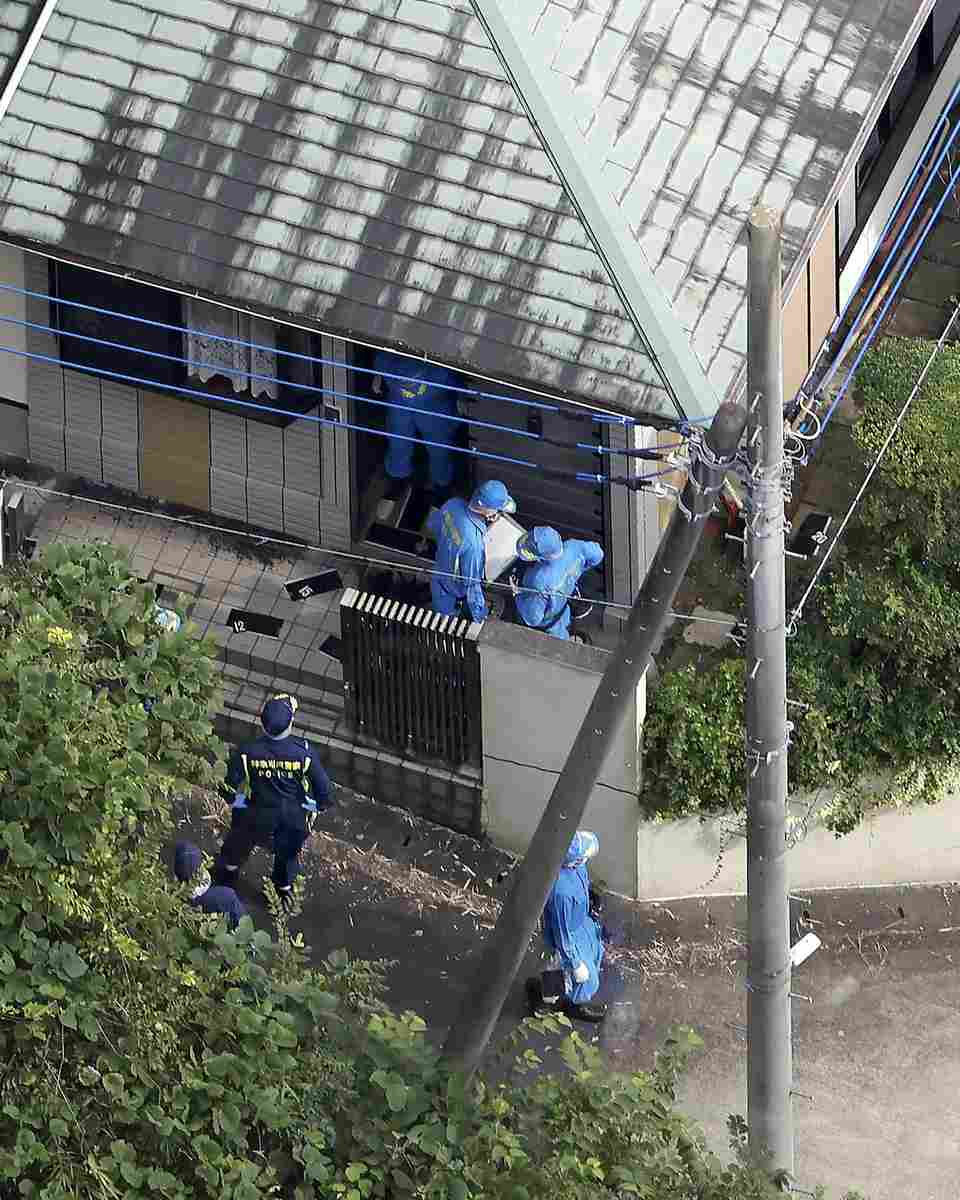
More than 20 robberies by “dark” part-time workers have occurred mainly in Tokyo, Chiba, Saitama and Kanagawa prefectures since August.
On Oct. 15, a man in his 70s was murdered and robbed of about ¥200,000 in cash by men who had broken into his Yokohama residence.
Most of the perpetrators of these crimes were recruited to take part in the robberies through social media such as X. About 50 people have been arrested in connection with these incidents, including ones who actually committed robberies and ones who collected cash from them. About 80% of those arrested were in their teens or 20s.
The National Police Agency has taken emergency measures to strengthen their analysis of smartphones belonging to the perpetrators.
6. Ruling bloc loses majority in lower house election
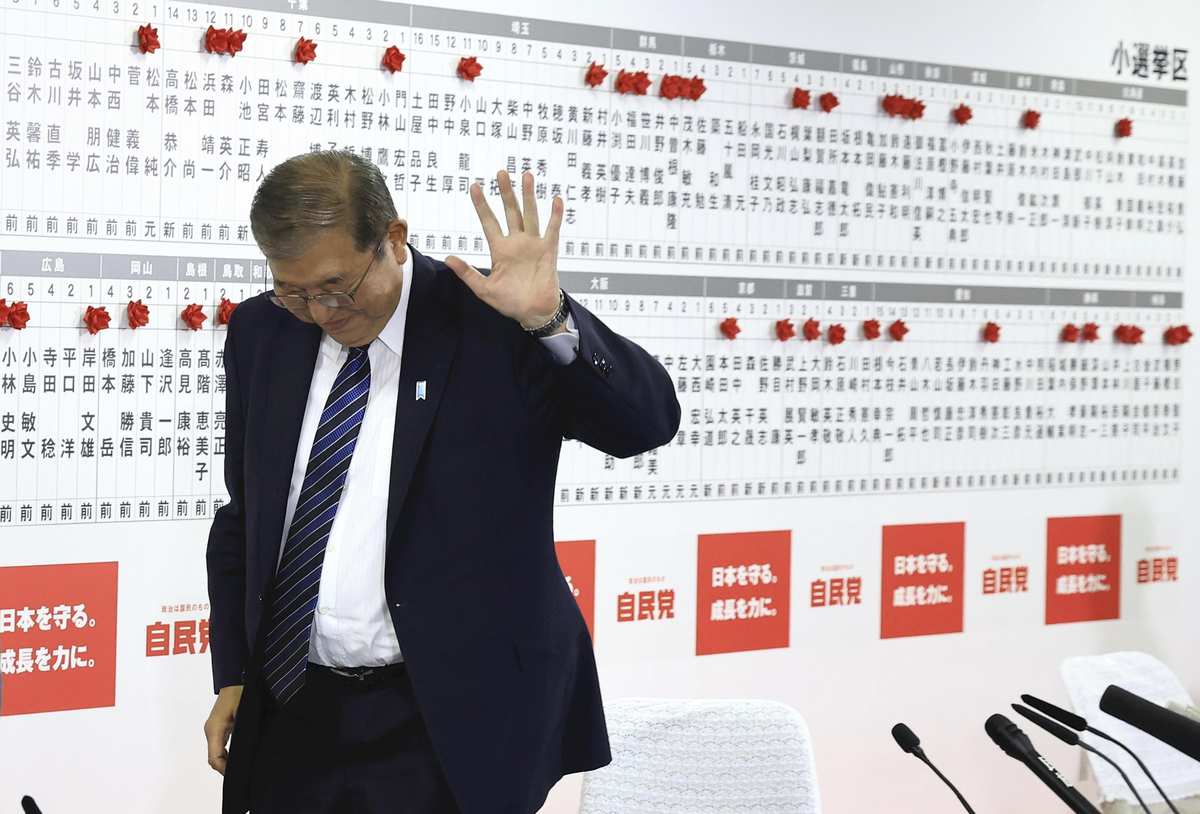
The ruling coalition of the Liberal Democratic Party and Komeito suffered a heavy defeat and lost its majority in the House of Representatives election on Oct. 27.
The ruling camp failed to secure 233 lower house seats, the number required for a simple majority in the lower house, in the face of fierce public anger over money scandals involving LDP politicians.
As a result of the 50th lower house election, the ruling coalition holds 215 seats, including 191 held by the LDP.
In the final stage of the campaign it was revealed that the LDP headquarters had provided ¥20 million even to branches led by candidates who were unendorsed due to their involvement in a political funds scandal. This sparked further criticism.
Opposition parties differed in their election outcomes.
The Constitutional Democratic Party of Japan increased its seats significantly to 148 from the 98 it had before the lower house dissolution, while the Democratic Party for the People quadrupled its number to 28.
The number of lower house seats held by the Japan Innovation Party decreased by six, falling to 38.
7. Ishiba elected as LDP president
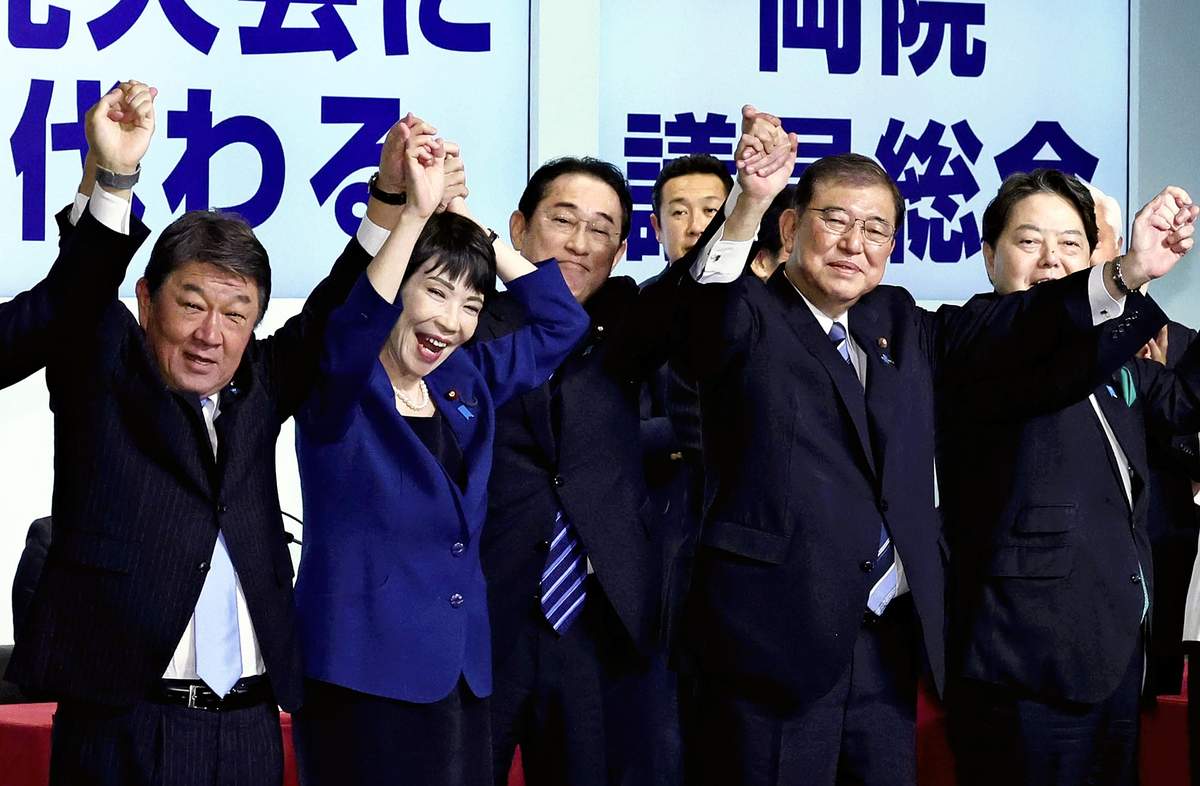
Former Liberal Democratic Party Secretary General Shigeru Ishiba was elected as the party’s 28th president on Sept. 27.
Nine candidates vied to succeed then Prime Minister Fumio Kishida, the largest number since 1972, when endorsements from 20 LDP Diet members became a condition to file for candidacy. Kishida announced in August he would step down.
In the election, Ishiba placed second in the first round of voting, but beat economic security minister Sanae Takaichi in a runoff. Ishiba became the 102nd prime minister after voting at the Diet to designate the prime minister, and he launched his Cabinet on Oct. 1.
The approval rating for the Cabinet stood at 51% in a Yomiuri Shimbun survey held immediately after the launch, down from 56% logged by Kishida’s Cabinet in a survey conducted in October 2021 upon their launch.
8. JAL, coast guard planes collide on Haneda runway

An Airbus A350-900 — Japan Airlines Flight 516, which was arriving from Shin-Chitose Airport in Hokkaido — and a Bombardier DHC-8 belonging to the Japan Coast Guard, collided and caught fire on a runway at Haneda Airport on Jan 2. While all 379 passengers and crew on board the JAL aircraft were able to escape, five people on board the JCG aircraft were killed. Only the Bombardier’s captain survived.
The air traffic controller had addressed the JCG aircraft as “No. 1,” meaning it was to be the first in line to take off, and instructed the aircraft to run to the stop position before the runway, but the Bombardier proceeded onto the runway and collided with the JAL airplane that was about to land.
The JCG aircraft had been scheduled to fly to Niigata Airport to deliver relief supplies to areas hit by the Noto Peninsula Earthquake.
9. Nihon Hidankyo wins Nobel Peace Prize
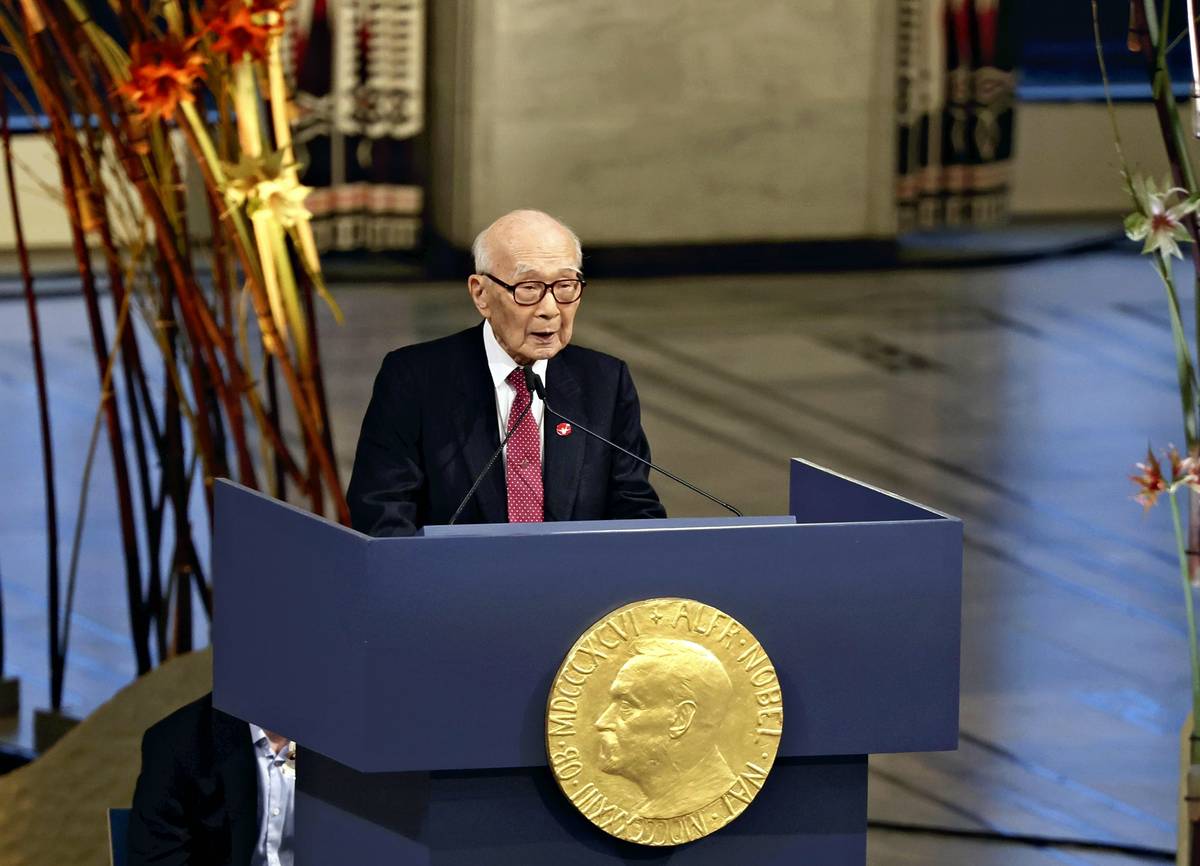
Nihon Hidankyo, or Japan Confederation of A- and H-Bomb Sufferers Organizations, won the 2024 Nobel Peace Prize for its efforts to eradicate nuclear weapons, the Norwegian Nobel Committee announced Oct. 11.
Nihon Hidankyo was highly praised for its continued efforts to call for the abolition of nuclear weapons through activities such as passing on the experiences of atomic bomb survivors from Hiroshima and Nagasaki.
On Dec. 10, cochair Terumi Tanaka reiterated the call for the abolition of nuclear weapons in a lecture he gave in Oslo for the peace prize.
Nihon Hidankyo is the second Nobel Peace Prize laureate from Japan, with former Prime Minister Eisaku Sato having won in 1974 for advocating Japan’s three nonnuclear principles.
10. Illnesses, deaths caused by benikoji supplements
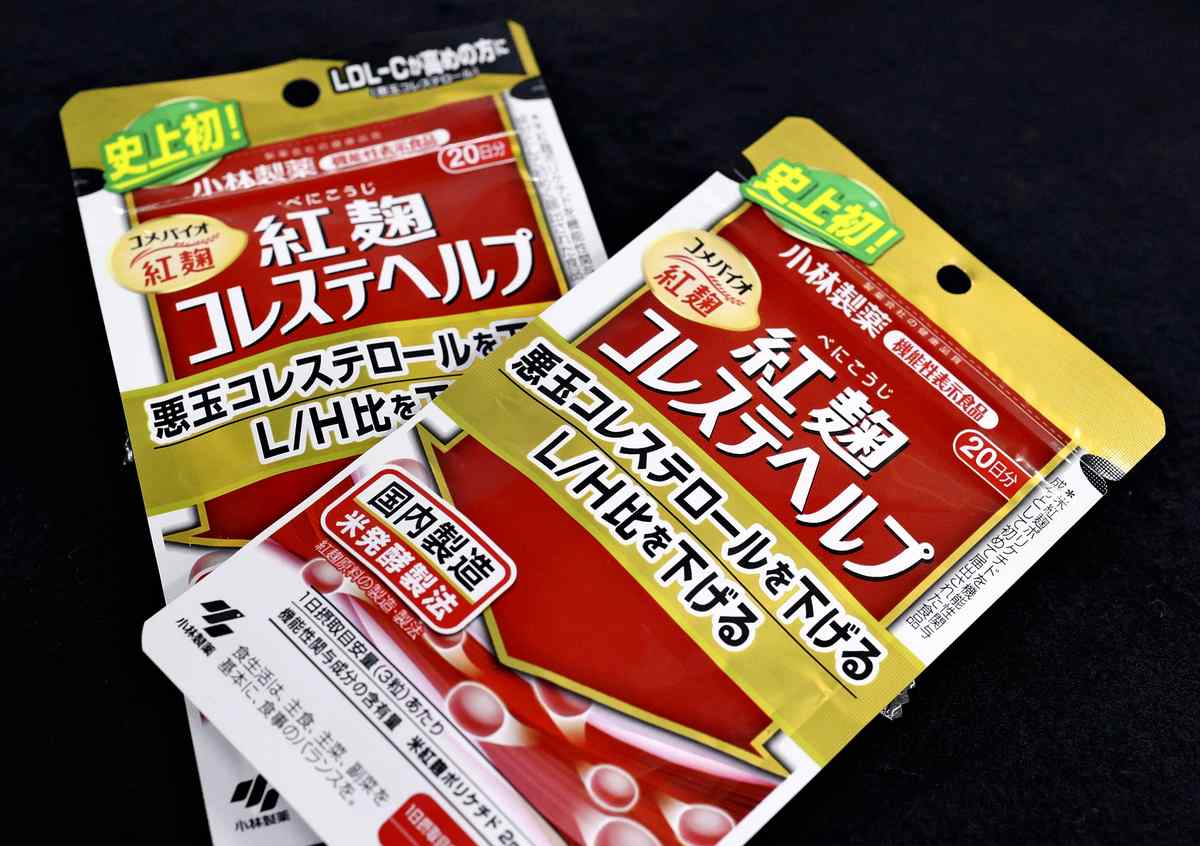
Kobayashi Pharmaceutical Co. announced a voluntary recall of three of its products, including the Benikoji CholesteHelp supplement, on March 22 after kidney illnesses developed in several people who had taken one of the company’s supplements made with benikoji red rice mold.
In September, the Health, Labor and Welfare Ministry said it had identified puberulic acid derived fom blue mold detected in the supplements’ ingredients as the cause of the kidney damage. The number of deaths suspected to be related to consumption of the supplements has exceeded 100.
Top Articles in Society
-

JAL, ANA Cancel Flights During 3-day Holiday Weekend due to Blizzard
-

Record-Breaking Snow Cripples Public Transport in Hokkaido; 7,000 People Stay Overnight at New Chitose Airport
-

Australian Woman Dies After Mishap on Ski Lift in Nagano Prefecture
-

Foreign Snowboarder in Serious Condition After Hanging in Midair from Chairlift in Nagano Prefecture
-

Train Services in Tokyo Resume Following Power Outage That Suspended Yamanote, Keihin-Tohoku Lines (Update 4)
JN ACCESS RANKING
-

Univ. in Japan, Tokyo-Based Startup to Develop Satellite for Disaster Prevention Measures, Bears
-

JAL, ANA Cancel Flights During 3-day Holiday Weekend due to Blizzard
-

China Confirmed to Be Operating Drilling Vessel Near Japan-China Median Line
-

China Eyes Rare Earth Foothold in Malaysia to Maintain Dominance, Counter Japan, U.S.
-

Japan Institute to Use Domestic Commercial Optical Lattice Clock to Set Japan Standard Time


